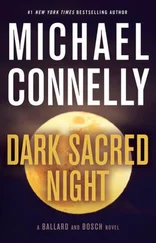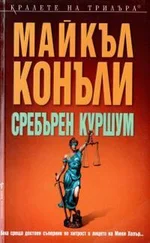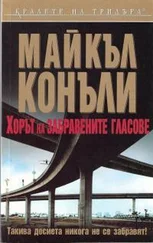“Your Honor!” Kennedy cried. “The state objects to the malicious allegation made by Mr. Haller. The source of the newspaper story was certainly not my office or investigative team, as we attempted diligently to handle this in a manner least impactful to Mr. Bosch. The story came from somewhere else, and the state asks for sanctions against Mr. Haller.”
“Your Honor,” Haller said calmly. “I am willing to show Clerk of the Court records, and my client is willing to show his phone records, which together make it clear that within two hours of my filing motions Friday, the reporter for the Los Angeles Times was calling Mr. Bosch and asking for comment. My motions were filed under seal and therefore copied only to the parties opposing Mr. Bosch right here, right now. You can draw your own conclusions, Judge. I have drawn mine.”
Houghton swiveled in his high-backed leather chair for a moment before responding.
“I think we’ve batted that back and forth enough,” he said. “There won’t be any sanctions. Let’s move this along. Mr. Haller, both Mr. Kennedy and Mr. Cronyn object to your client’s standing in this matter. How do you respond to that?”
Haller banged a fist down on the lectern for emphasis before wading into the fray again.
“How do I respond?” he asked. “I’m incredulous, Your Honor. Sunday’s newspaper dragged my client through the mud. It clearly implied that he planted evidence that sent a man away to death row. And here we are, and he was not even invited to the party? Given that the newspaper account and the allegations contained in the state’s petition implicate my client’s property rights in reputation and good name, I believe he has standing to intervene and defend those rights. If that is not the correct vehicle, then I would suggest the alternative, that he be viewed as a friend of the court and be permitted to testify and adduce evidence relevant to the issues the Court must weigh.”
Houghton solicited responses from Kennedy and Cronyn, but it became clear to Bosch that the judge found it difficult not to give him his day in court after his name and reputation were called into question by the Times and by the details of the original petitions, which the D.A.’s Office did not seek to seal from public view. Kennedy became frustrated when he made the same read on the judge’s words and demeanor as Bosch had.
“Your Honor, the state can’t be held responsible for an article in the newspaper,” he said. “I — we — were not the source of the story. If we made a mistake in not asking for our motion to be sealed, then okay, that is on us, but it’s surely not enough of an infraction to warrant this intervention by Bosch. There is a man sitting in this courtroom who has been on death row for more than ten thousand days — yes, I did the math — and it is our duty as officers of the court to make that injustice our priority today.”
“That is, if it’s an injustice,” Haller said quickly. “The evidence we seek to present tells a different story, Your Honor. It’s the story of a scam carried out by cunning minds and perpetrated on the citizenry as well as on Mr. Kennedy and his office.”
“I’m going to take ten minutes to refer to the code and then we’ll reconvene,” Houghton said. “Nobody go far. Ten minutes.”
The judge was up and off the bench quickly and he disappeared into the hallway behind the clerk’s corral that led to his chambers. Bosch liked that about Houghton. He had been in trials with the judge in the past and knew he was very assured as a courtroom referee. But he wasn’t conceited enough to assume he knew every nuance of the law as written. He was willing to call a quick time-out to check the code books so that when he made a ruling, it had the solid backing of the law.
Haller turned around and looked at Bosch. He pointed toward the rear door of the courtroom and Bosch understood that he was still wondering about Spencer. It was a sign that Haller was confident that the judge’s ruling was going to go his way.
Bosch got up and walked out of the courtroom to check on Spencer. The hallway was practically deserted now and there was no sign of him.
Bosch went back into the courtroom. The sound of the door drew Haller’s attention and Bosch shook his head.
The judge returned to the bench a minute early and immediately shot down a request from Kennedy to provide further argument. He then proceeded with his ruling.
“Although the statute and rules governing habeas procedure are within the penal code, it’s axiomatic that such a petition is in the nature of a civil action. Hence, an intervenor under civil rules would seem to be appropriate. Detective Bosch’s property right in his good name and reputation is an interest that he is entitled and permitted to protect and that is, to the Court’s observation and research, not being protected by the existing parties to this action. So I grant the motion for leave to intervene. Mr. Haller, you can call your first witness.”
Kennedy, who had inexplicably remained standing after his last objection was denied, quickly objected again.
“Your Honor, this is unfair,” he said. “We are not prepared for witnesses. The state requests that we carry this over thirty days in order to seek depositions and prepare for a hearing.”
Cronyn stood as well. Bosch expected him to protest any postponement but instead he seconded the request. Bosch thought he saw Kennedy wince. It was probably at that moment that the prosecutor knew he had somehow been played by Cronyn or Borders or both.
“What happened to the ten thousand days Mr. Kennedy mentioned earlier?” Houghton said. “The travesty of justice? Now you want to send the man whom your petition exonerates back to death row for another thirty days? We all know that with court calendars being what they are, there is no thirty-day delay. Putting this off for thirty days might as well be ninety, because my calendar is that far out. I’m not seeing a reason to delay these proceedings, gentlemen.”
Houghton swiveled in his chair again and looked down from the bench at Borders.
“Mr. Borders, are you willing to go back up to San Quentin for another three months while the attorneys get into this?”
There was a long moment before Borders responded and Bosch savored every second of it. There was no good answer for Borders. To accept the delay would be to reveal, as his attorney just had, that there was something wrong here. To say he did not accept his own attorney’s wish for a delay would be to invite Haller to trot his witnesses to the stand and risk the whole scam being exposed.
“I just want to get it right,” Borders finally said. “I’ve been up there a long time. I don’t suppose a little more time matters if it means they get it right.”
“That’s exactly what the Court is trying to do here,” Houghton said. “Get it right.”
Bosch caught movement in his peripheral vision and turned to see the courtroom door opening. A man in a suit who he presumed was a lawyer entered and he was followed by Terry Spencer.
They stepped in and surveyed the courtroom, and the soft bang of the door closing behind them drew the rest of the eyes in the room to them. Bosch turned to check that Haller saw that their witness had arrived. Then he looked at the faces at the defense table. Borders showed minimal interest in the new arrivals because he didn’t know Spencer by sight. But the reactions of the Cronyn legal team were telling. Lance Cronyn pursed his lips and blinked. He looked like a chess player who knew three moves out that he had lost. Katherine Cronyn’s reaction went beyond surprise. She looked like she was seeing a ghost. Her jaw went slack and her eyes turned from the man standing at the back of the courtroom to her husband, sitting on the other side of their client. Bosch read fear in them.
Читать дальше
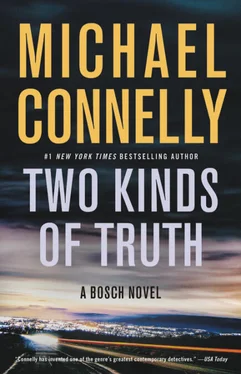




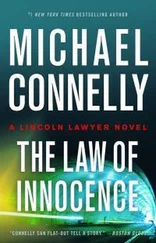

![Майкл Коннелли - The Night Fire [Harry Bosch - 22]](/books/405630/majkl-konnelli-the-night-fire-harry-bosch-22-thumb.webp)
